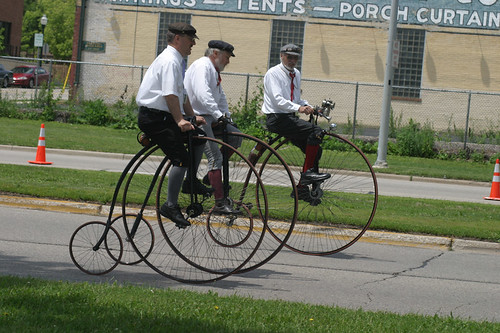
In January, the Bike Fed helped to launch the Wisconsin Safe Routes to School Network, which brings together 50 state leaders from government, non-profits and the bicycle business to remove barriers to walking and biking to school. Safe Routes to School is a national movement to boost the number and safety of kids walking and biking to school, and our network is one of 20 such groups throughout the country.
At the heart of the new state network effort is policy change. We want to remove policy barriers to walking and bicycling to schools by:
- Creating complete streets that include pedestrian and bicycle accommodations
- Changing statewide policies for how sites are chosen for new schools, so that accessibility by foot and bike are considered
- Implementing legislation that leads to funding or policy changes
- Complete Streets. The network has reviewed and submitted comments on WisDOT’s draft complete streets administrative rules. The rules will flesh out the complete streets law passed by the Wisconsin legislature in 2009, which mandates that newly constructed or reconstructed state roads include access for people traveling by foot, wheelchair and bicycle.
- Sharing Information. The network is working with WisDOT to create a guide highlighting the successes of Wisconsin’s existing Safe Routes to School programs and how other school districts can emulate them.
- Improving Curriculum. The network is reviewing a bicycling safety curriculum for physical education teachers and looking at ways to include active transportation education in many academic subjects.
- Access for Low-Income Communities. The Wisconsin Network is actively working to make Safe Routes more accessible to low-income communities of color, including American Indian tribes, and has applied for a grant to support these efforts.
If you’re interested in participating in the Wisconsin Safe Routes to School Network, or want more information about it, please contact me at jessica@bfw.org or 414-431-1761, ext. 3. You can find more information at www.saferoutes.bfw.org.





